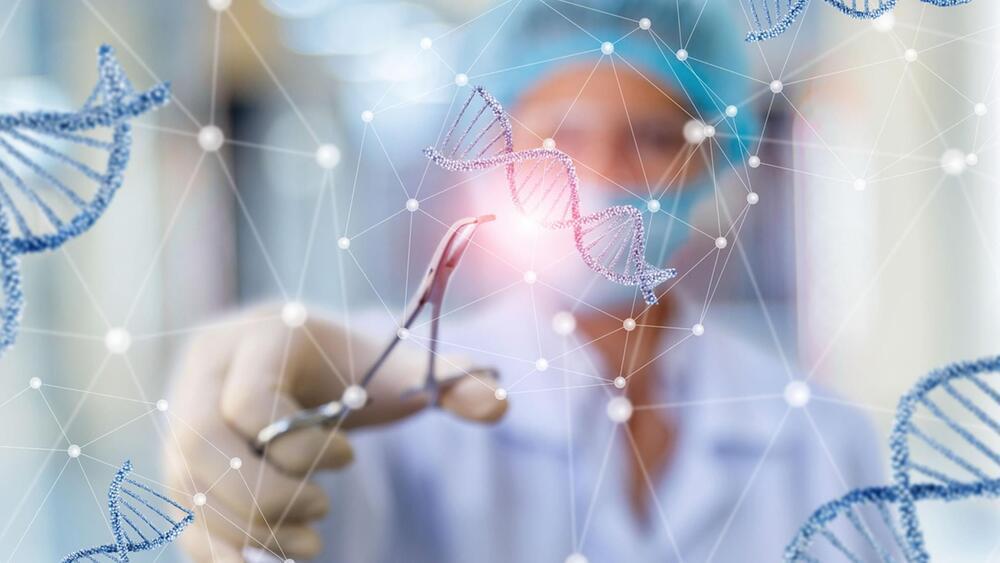Jan 28, 2023
Rapamycin, mTert, HSCT, Senolytic First Robust Rejuvenation Trial | Dr Aubrey de Grey 2 Ep 2
Posted by Montie Adkins in categories: biotech/medical, life extension
Tidbits:
This current experiment is 3 million dollars.

Tidbits:
This current experiment is 3 million dollars.
If you enjoy some good toilet technology, then I think “urine” for a treat. Starling Medical is poised to launch its at-home urine diagnostic patient-monitoring platform, dubbed “StarStream,” that doesn’t rely on the traditional catching containers or dipsticks.
Now, if you’re thinking this technology sounds familiar, you would be correct: My colleague Haje Jan Kamps wrote about Withings’ U-Scan, a urinalysis device, earlier this month when the health-focused consumer tech company debuted it at CES. U-Scan also sits in the toilet for at-home monitoring.
However, Alex Arevalos, Starling’s co-founder and CEO, told TechCrunch that this is an underserved market — the global urinalysis market is forecasted to be valued at $4.9 billion by 2026, meaning there is plenty of room for Withings and a scrappy startup.
Three of them were transferred, and two developed. Rachel, who said she had a relatively straightforward pregnancy, gave birth on October 31 at 37 weeks and two days.
Timothy weighed 6 pounds and 7 ounces. Lydia weighed 5 pounds and 11 ounces.
The twins’ record-breaking delivery was verified by the University of Tennessee’s Preston Medical Library. The previous record holder was a child named Molly Gibson, who was born in 2017. The frozen embryo that later became Molly had been stored for 24 years.
Its impressive how adaptive the brain is to each situation. It can sense which portions of the brain need more blood flow depending on energy usage and makes the needed tiny adjustments.
Summary: Researchers identified a specific type of cell that sits on top of the brain’s smallest blood vessels that sense when their region of the brain is in need of energy.
Source: University of Maryland
Epigenetic Leaderboard The Rejuvenation Olympics – where you win by never crossing the finish line See How You Rank Top 15 largest age reversals validated by phenotypically trained epigenetic methylation algorithms Rank Name % Improved From Baseline Chronological Age Baseline PACE PACE Of Aging Now (Mean Of 3 Tests) Managing Doctor 1 Bryan […].
𝐀 𝐝𝐫𝐮𝐠 𝐭𝐡𝐚𝐭 𝐢𝐧𝐜𝐫𝐞𝐚𝐬𝐞𝐬 𝐝𝐨𝐩𝐚𝐦𝐢𝐧𝐞 𝐜𝐚𝐧 𝐫𝐞𝐯𝐞𝐫𝐬𝐞 𝐭𝐡𝐞 𝐞𝐟𝐟𝐞𝐜𝐭𝐬 𝐨𝐟 𝐢𝐧𝐟𝐥𝐚𝐦𝐦𝐚𝐭𝐢𝐨𝐧 𝐨𝐧 𝐭𝐡𝐞 𝐛𝐫𝐚𝐢𝐧 𝐢𝐧 𝐝𝐞𝐩𝐫𝐞𝐬𝐬𝐢𝐨𝐧, 𝐄𝐦𝐨𝐫𝐲 𝐬𝐭𝐮𝐝𝐲 𝐬𝐡𝐨𝐰𝐬
𝘼𝙣 𝙀𝙢𝙤𝙧𝙮 𝙐𝙣𝙞𝙫𝙚𝙧𝙨𝙞𝙩𝙮 𝙨𝙩𝙪𝙙𝙮 𝙥𝙪𝙗𝙡𝙞𝙨𝙝𝙚𝙙 𝙞𝙣 𝙉𝙖𝙩𝙪𝙧𝙚’𝙨 𝙈𝙤𝙡𝙚𝙘𝙪𝙡𝙖𝙧 𝙋𝙨𝙮𝙘𝙝𝙞𝙖𝙩𝙧𝙮 𝙨𝙝𝙤𝙬𝙨 𝙡𝙚𝙫𝙤𝙙𝙤𝙥𝙖, 𝙖 𝙙𝙧𝙪𝙜 𝙩𝙝𝙖𝙩 𝙞𝙣𝙘𝙧𝙚𝙖𝙨𝙚𝙨 𝙙𝙤𝙥𝙖𝙢𝙞𝙣𝙚 𝙞𝙣 𝙩𝙝𝙚 𝙗𝙧𝙖𝙞𝙣, 𝙝𝙖𝙨 𝙥𝙤𝙩𝙚𝙣𝙩𝙞𝙖𝙡 𝙩𝙤 𝙧𝙚𝙫𝙚𝙧𝙨𝙚 𝙩𝙝𝙚 𝙚𝙛𝙛𝙚𝙘𝙩𝙨 𝙤𝙛 𝙞𝙣𝙛𝙡𝙖𝙢𝙢𝙖𝙩𝙞𝙤𝙣 𝙤𝙣 𝙗𝙧𝙖𝙞𝙣 𝙧𝙚𝙬𝙖𝙧𝙙 𝙘𝙞𝙧𝙘𝙪𝙞𝙩𝙧𝙮, 𝙪𝙡𝙩𝙞𝙢𝙖𝙩𝙚𝙡𝙮 𝙞𝙢𝙥𝙧𝙤𝙫𝙞𝙣𝙜 𝙨𝙮𝙢𝙥𝙩𝙤𝙣𝙨 𝙤𝙛 𝙙𝙚𝙥𝙧𝙚𝙨𝙨𝙞𝙤𝙣.
Numerous labs across the world have shown that inflammation causes reduced motivation and anhedonia, a core symptom of depression, by affecting the brain’s reward pathways.
I never thought I’d order live human kidney cells to my address, but that all changed when I found out about biohacker Jo Zayner’s at-home genetic engineering class.
You may know Jo Zayner, a “biohacker” who has been in the vanguard of scientific self-experimentation for years, from their role in Netflix’s 2019 docuseries Unnatural Selection. The series shows Zayner attempting to edit their DNA by injecting themselves with CRISPR, a gene-editing technology. The action inspired a firestorm of criticism.
Zayner is also known for a variety of other bold moves, such as claiming to create a DIY at-home COVID vaccine in 2020 and executing their own fecal microbiome transplant.
Greater diversification could help agriculture withstand climate, economic and geopolitical crises.
“Items in this section have limited availability due to supplier production issues,” “Sorry, temporarily out of stock” and “Sold out” are all signs that became familiar as recent global upheavals exposed how precarious our food supply is.
The COVID-19 pandemic led to bare shelves in supermarkets as shipping routes were cut off. The war in Ukraine has affected the supply of essential grains.

CRISPR may be in for a fight thanks to this new, faster, safer, AI-powered zinc-finger gene-editing technique.
A new study has developed what the researchers call the “world’s first” simple, modifiable proteins. Called “zinc fingers,” these special proteins were developed partially through artificial intelligence.
Continue reading “A new AI-powered gene-editing technique could be set to replace CRISPR” »
